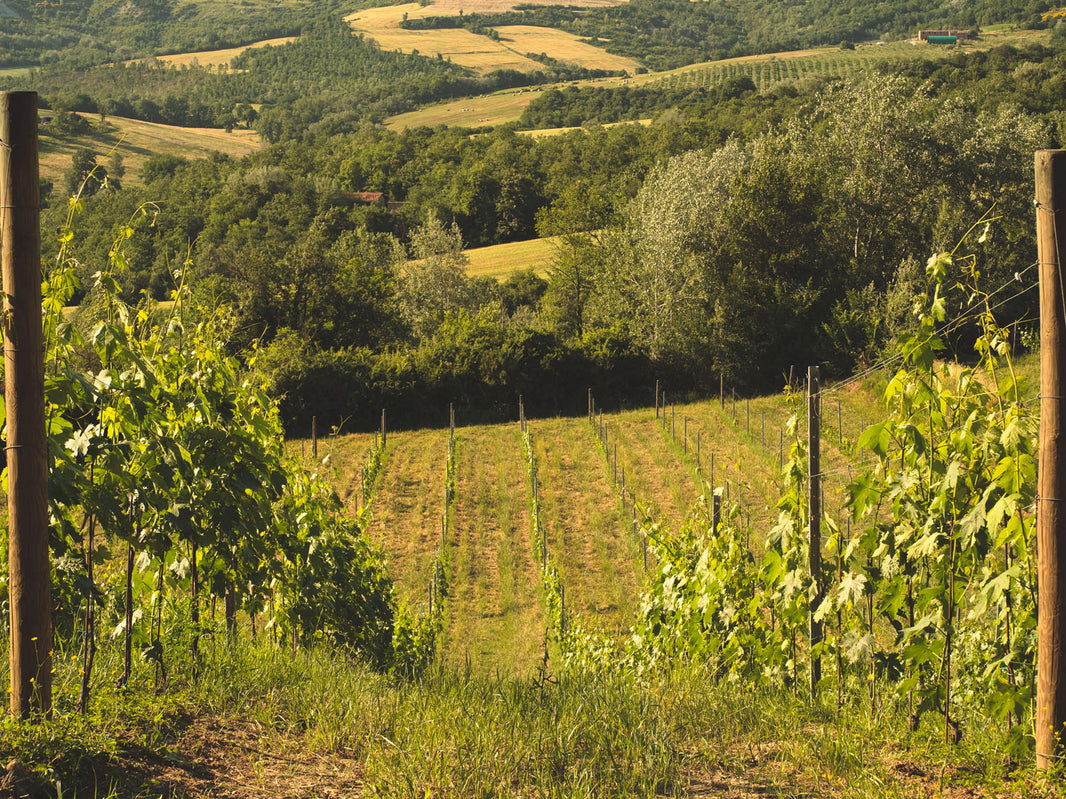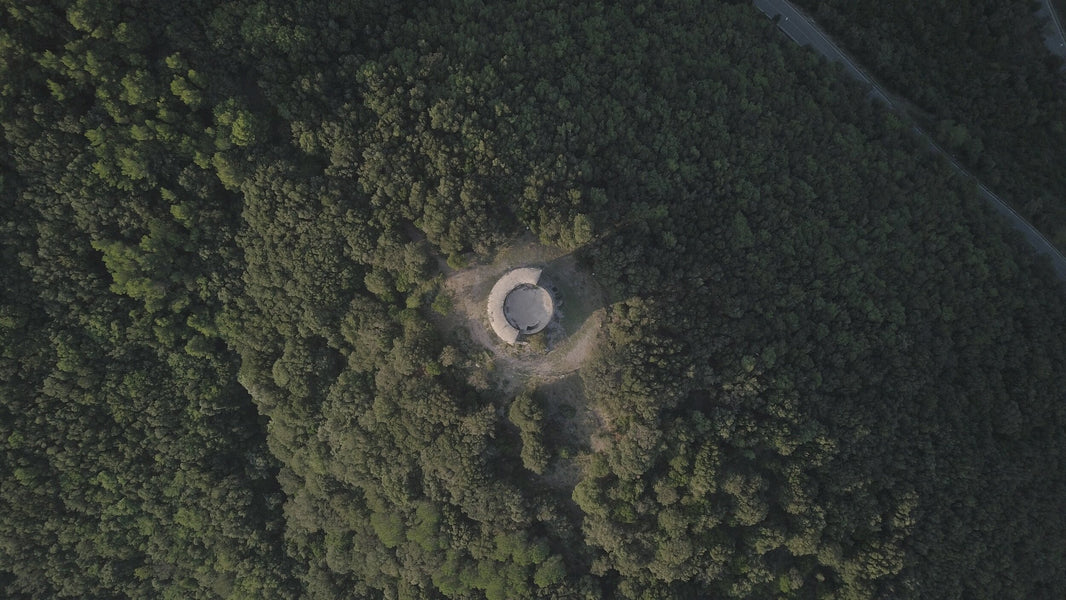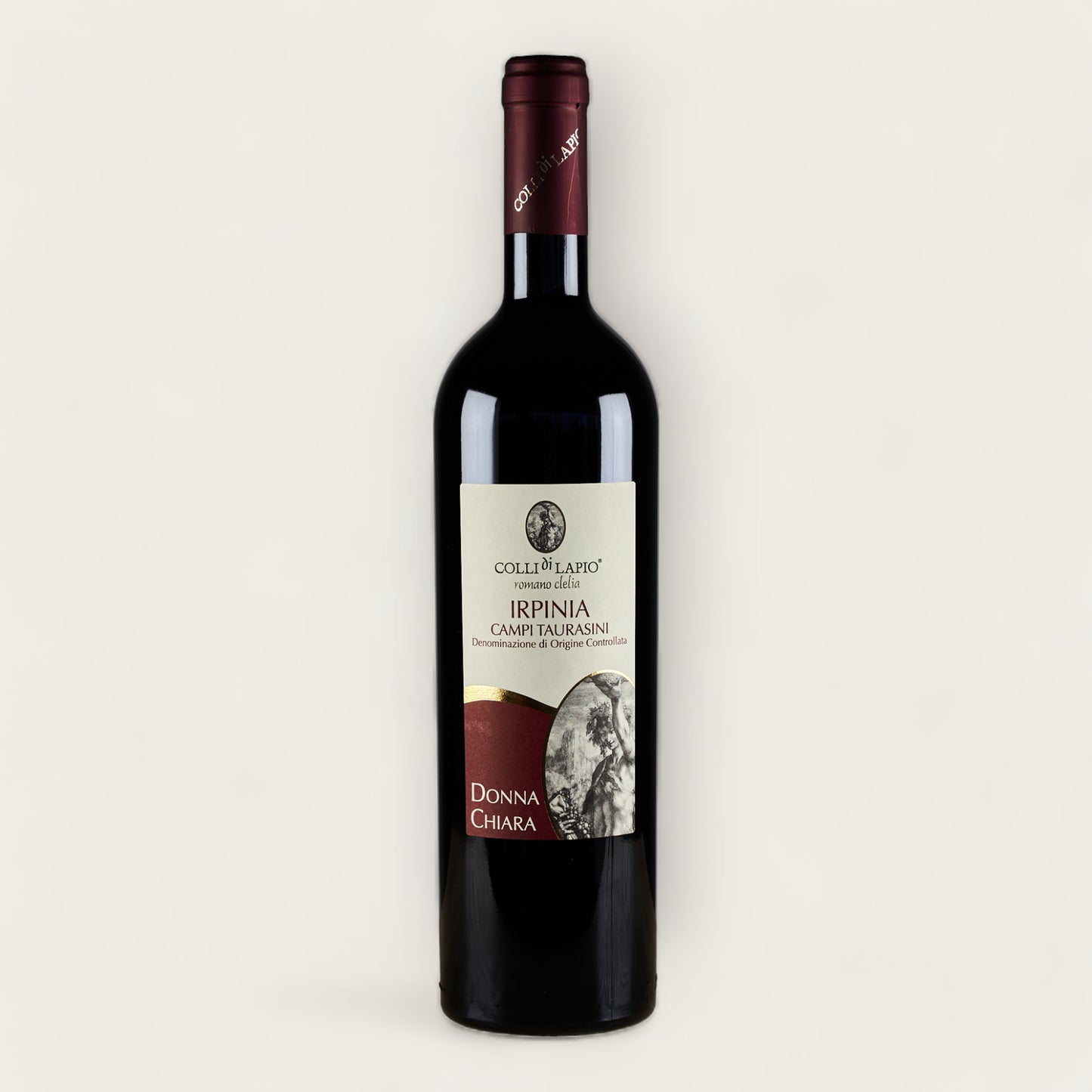Stay up-to-date with the latest news, exclusive promotions, and exciting events by subscribing to our newsletter! Sign up now and receive a 10% discount on your first purchase. Don't miss out on this great opportunity to stay connected with us and get access to special offers!
2018 – Colli di Lapio – Donna Chiara – Irpinia Campi Taurasini DOC – Aglianico
- Tax included.
Donna Chiara is a wine based on the Aglianico grape, representing an excellent example of the outstanding Irpinia area, renowned for its volcanic soil where the vines are planted. This impeccable combination results in a wine with bright fruit and acidity, complemented by the more complex aromas derived from the terroir and barrel aging.
The wine exhibits a concentrated ruby-red color with a pink variation at the rim. Aromas of wild berries, dark plum, and violet, accompanied by spice notes such as black pepper and cloves, are present. The wine is vibrant on the palate with well-integrated tannins, leading to a long finish featuring dark plum, cloves, and tobacco.
Fermented in steel tanks and matured in both barriques and steel vats, Donna Chiara showcases the unique characteristics of the Aglianico grape and the Irpinia terroir.
Grape Variety:
Alcohol: 14.5%
Serving Termperature °C: 14-16°C
Ageing Potential: 5-10 years
Terroir: Narni - Umbria

Colli di Lapio

Narni - Umbria

Campania


